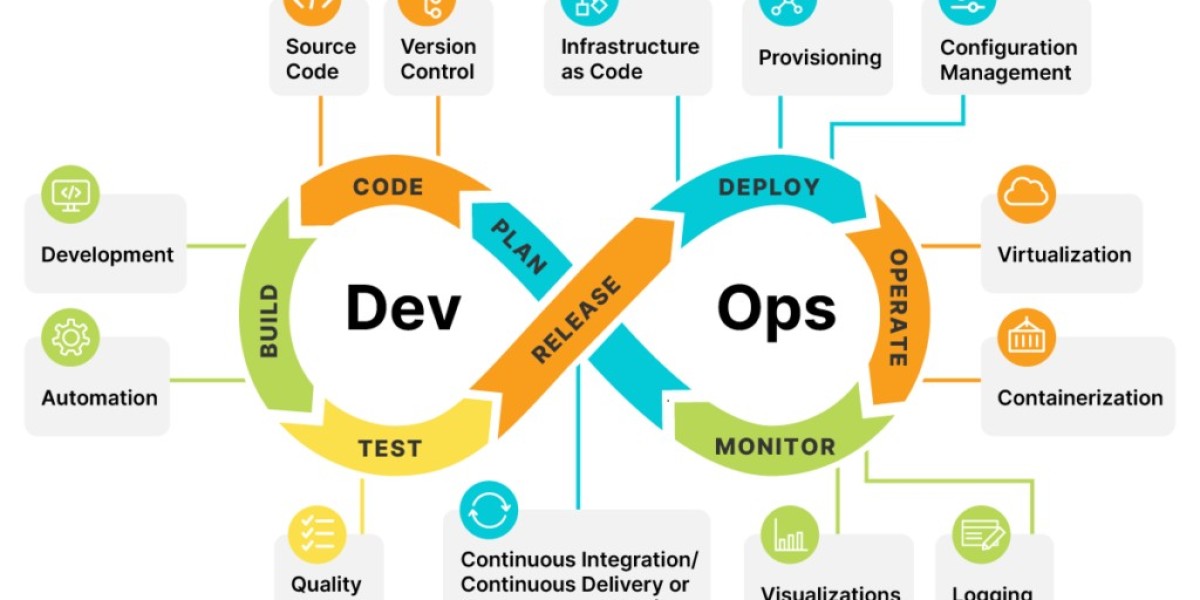Microservices architecture is a software development approach that breaks down an application into smaller, independent services. These services are self-contained and communicate with each other using well-defined APIs. Microservices architecture offers a number of benefits, including:
- Increased scalability: Microservices can be scaled independently, which makes it easy to add or remove capacity as needed.
- Improved fault tolerance: If one service fails, the others can continue to operate.
- Easier development and maintenance: Microservices are easier to develop and maintain than monolithic applications.
- Better alignment with business needs: Microservices can be aligned with specific business capabilities, which makes it easier to deliver value to customers.
DevOps is a set of practices that combine software development (Dev) and IT operations (Ops) to accelerate the software delivery process and improve software quality. DevOps practices, such as continuous integration and continuous delivery (CI/CD), can be used to great effect with microservices architecture.
How DevOps and Microservices Work Together
DevOps and microservices work together to create a more efficient and agile software development process. With DevOps, developers and operations teams work together to automate the software delivery process. This means that code can be continuously integrated and delivered to production, without the need for manual intervention.
Microservices architecture makes it easier to implement CI/CD because each service can be deployed independently. This makes it easier to roll out new features and bug fixes without disrupting the entire application.
Benefits of Using DevOps with Microservices
There are a number of benefits to using DevOps with microservices architecture, including:
- Faster release cycles: CI/CD allows for faster release cycles, which means that new features and bug fixes can be delivered to customers more quickly.
- Improved quality: DevOps helps to improve software quality by automating the testing process. This means that bugs can be caught and fixed earlier in the development process.
- Increased agility: DevOps makes it easier for teams to respond to changes in the business environment. This is because new features and bug fixes can be deployed quickly and easily.
- Reduced costs: DevOps can help to reduce costs by automating the software delivery process. This means that there is less manual intervention required, which can save time and money.
How to Implement DevOps with Microservices
There are a number of steps that need to be taken in order to implement DevOps with microservices architecture. These steps include:
- Define the microservices architecture: The first step is to define the microservices architecture. This involves identifying the different services that will be needed and how they will interact with each other.
- Develop the microservices: Once the microservices architecture has been defined, the next step is to develop the microservices. This involves writing the code for each service and testing it to ensure that it works correctly.
- Deploy the microservices: Once the microservices have been developed, they need to be deployed to production. This can be done using a variety of deployment methods, such as Docker or Kubernetes.
- Automate the software delivery process: The final step is to automate the software delivery process. This involves using CI/CD tools to automate the build, test, and deployment of the microservices.
Conclusion
Microservices architecture and DevOps are two powerful tools that can be used to create scalable, reliable, and agile applications. By combining these two approaches, organizations can improve the speed, quality, and cost-effectiveness of their software delivery process.
About Us: DevOps adoption has experienced a significant boost in California as more companies prioritise optimizing their software development cycle. DevOps enables faster deployment and improves testing rigour, making it a crucial business component. As a result, numerous American top devops companies now provide DevOps consulting services. BDCC Global has compiled the latest list of top DevOps companies in USA based on their exceptional services, market presence, and customer satisfaction. This list is an essential guide for businesses seeking a trustworthy and competent DevOps Company to help them achieve their software development goals.



